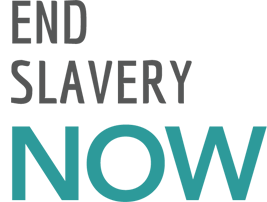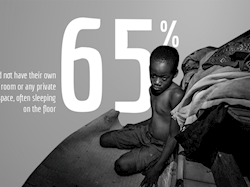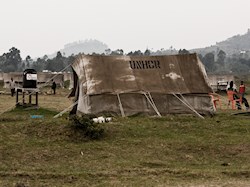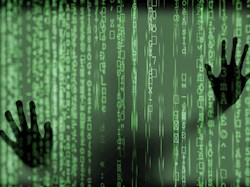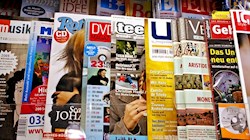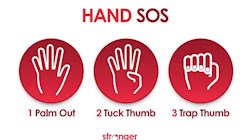Slavery, Poverty, and the Fashion Industry: MADE FREE’s Business Model for Sustainable Social Reform
November 18, 2021
Brad Jeffery
Story
Spotlight
�
Awareness,
Empowerment,
Women & Girls,
Business,
Aftercare,
Slave Free Lifestyle
"I came to realize that to win the war on poverty and modern day slavery, we need to address the root issues. Those who make our fashion need to make a livable wage. And it is possible to develop a for-profit model that pays the makers well AND competes on the world stage in design and quality." - Brad Jeffery
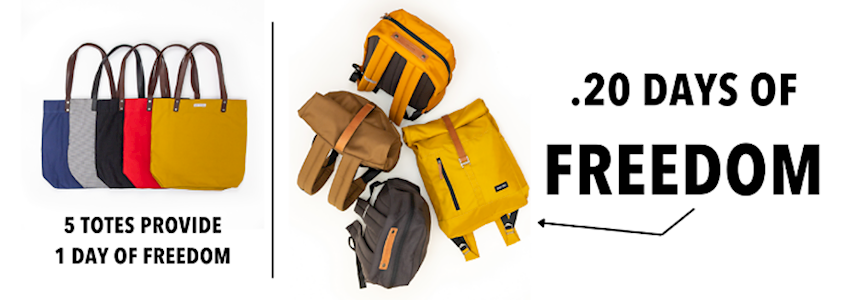
There are around 40 million enslaved people in the world[1]. Of that 40 million, almost 8 million live in India[2], and 70% are female[1]. Furthermore, 696 million people are living at poverty level with an income of $1.90/day or less[3], many of whom work in South Asia’s fast-growing apparel industry[4].
Social reform in India - and around the world - requires addressing the root causes of slavery, poverty, and the need for sustainable and ethical jobs. Handouts of food, clothing, and water may help today, but don’t necessarily change the circumstances for tomorrow. Sustainable work means freedom because it provides an individual with the opportunity to be self-sufficient and self-reliant.
Launching an Alternative Business Model: The MADE FREE Story
I saw this desperate need firsthand, and the tremendous opportunity, and I had to do something. After I returned from travels in Africa and South Asia, I couldn’t shake the hunger to develop a business model to help the millions of people suffering from human trafficking, slavery, and extreme poverty. As I shared my vision with friends and met my wife, Katherine (who shared my passion for helping the least of these), it became increasingly clear to move forward to engage the fortunate few in helping the marginalized many.
I came to realize that to win the war on poverty and modern day slavery, we need to address the root issues. Those who make our fashion need to make a livable wage. And it is possible to develop a for-profit model that pays the makers well AND competes on the world stage in design and quality.
And that’s how MADE FREE® began, a social enterprise apparel and accessories brand that serves as a vehicle for consumers to help create sustainable social reform.
Transparency in the Apparel Industry
Sustainable. Ethical. Conscious. These words have grown in popularity throughout the apparel world. Awareness of the modern fashion industry's major pitfalls (i.e. child labor, astonishingly low wages, unsafe working conditions, factory pollution, etc.) is increasing among consumers.
In Bangladesh in 2013, a clothing factory full of workers collapsed, killing 1,132 people[5]. This event, often referred to as Rana Plaza, sparked a consumption revolution which spurred social justice movements within the fashion industry in the years since[6]. It tore the curtain back on so many problems that come from demands for constant, new, cheap fashion.
Since then, more companies have communicated they are implementing ethical business practices, and that message is reflected in their marketing. However, a company’s words are empty without actions and transparency to back them up. In a society of ever-growing “green-washing” and “ethics-washing” marketing campaigns, we understand firsthand the difficulty a consumer faces in attempts to make more thoughtful purchase decisions.
At MADE FREE, we do our best to provide a transparent shopping experience. We communicate accurate information about the production of the product and about those who made it so consumers know the full story behind their purchase. We are encouraged that greater numbers of consumers value this level of transparency as they make purchases.
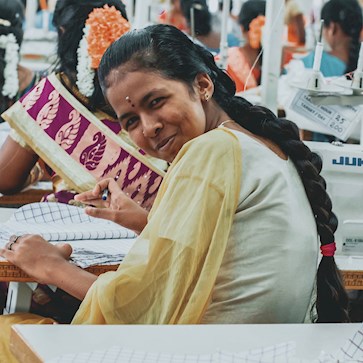
What Does Holistic, Sustainable Reform Look Like in the Apparel Industry?
We believe reform is not sustainable if it’s not holistic, integrating ecological, social, and economic measures. It’s one thing to use environmentally sound materials in all products, but if the maker isn’t cared for, this “sustainability” has a net-negative impact.
On the flip-side, if we don’t utilize ecologically sound materials, we can destroy the very communities in which our crafters reside. This is why we are doing all we can to help end the injustice of slavery and extreme poverty through well-paying, ethical jobs while using eco-friendly, organic, recycled materials as much as possible.
We approach design and production in ways that care for people and the planet. Our products are handcrafted by small factory teams that meet or exceed the World Fair Trade Organizations (WFTO) standards. We use 100% organic cotton canvas. And we use the finest eco-friendly, vegetable-tanned, biodegradable leather -- leather that is actually a waste byproduct which would be otherwise discarded into a landfill.
In addition, our lifetime guarantee supports a limited, curated personal collection of fewer quality items and a reduction of what we discard. Reducing our fashion waste may be the most impactful thing we can do to improve our planet. According to the Environmental Protection Agency, “landfills received 11.3 million tons of MSW [Municipal Solid Waste] textiles in 2018.”[7]
Together, I believe we can change lives while stewarding our planet, providing the maker a dignified, empowered pathway out of extreme poverty and reducing their risk of being trafficked or enslaved.
How do we measure freedom?
Every MADE FREE purchase supports a day of freedom from human trafficking, slavery, and poverty through a self-sustaining job. How do we calculate that? One day of freedom is one day of self-reliant, safe, and ethically-paid work.
At the time of this writing, through the support of our customers and organizations like the National Underground Railroad Freedom Center, 55,224 total days of freedom have been provided to crafters in India since our founding in 2013.
You can read our makers’ stories and see the impact of freedom on their lives on our website: https://madefree.co/pages/makers
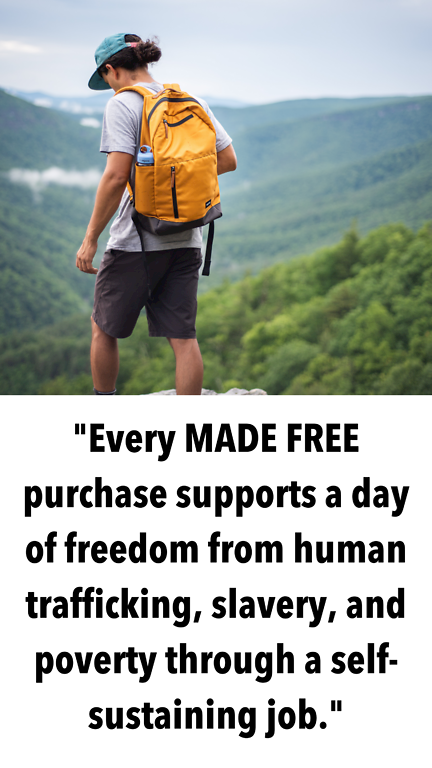
Come Join Us!
Each MADE FREE purchase gives hope and opportunity for a life made free. Our mission is for one million people to be made free through self-sustaining jobs. Visit www.madefree.co and follow us on Instagram @madefree.co to check in on our progress, join the mission, and shop holiday gifts with impact for your loved ones.
The MADE FREE mission began under the name CAUSEGEAR in Chicago, IL, in 2013. In the years since, the community has grown, the name has changed, and the office has relocated, but the mission remains the same: support freedom from human trafficking, slavery, and poverty through a self-sustaining job.
Follow us on Instagram & Facebook @madefree.co.
- “Global Findings: Global Slavery Index.” Global Findings | Global Slavery Index. The Minderoo Foundation, 2018. https://www.globalslaveryindex.org/2018/findings/global-findings/.
- “Maps: Global Slavery Index.” Maps | Global Slavery Index. The Minderoo Project, 2018. https://www.globalslaveryindex.org/2018/data/maps/#vulnerability.
- Poverty & Equity Data Portal. World Bank Group. Accessed November 11, 2021. https://povertydata.worldbank.org/poverty/home/.
- Wiego, By, Wiego, Marlese von Broembsen, Marlese von Broembsen, Jenna Harvey, Jenna Harvey, Marty Chen, Roopa Madhav, and Roopa Madhav. “Garment Workers.” WIEGO. Accessed November 11, 2021. https://www.wiego.org/garment-workers.
- The Rana Plaza Accident and its aftermath. International Labour Organization, December 21, 2017. https://www.ilo.org/global/topics/geip/WCMS_614394/lang--en/index.htm.
- “Eight Years Later: From Rana Plaza to a Sustainable Fashion Future.” Fairtrade International, April 26, 2021. https://www.fairtrade.net/news/eight-years-later-from-rana-plaza-to-a-sustainable-fashion-future.
- “Textiles: Material-Specific Data.” EPA. Environmental Protection Agency. Accessed November 11, 2021. https://www.epa.gov/facts-and-figures-about-materials-waste-and-recycling/textiles-material-specific-data.
Topics:
Awareness,
Empowerment,
Women & Girls,
Business,
Aftercare,
Slave Free Lifestyle
